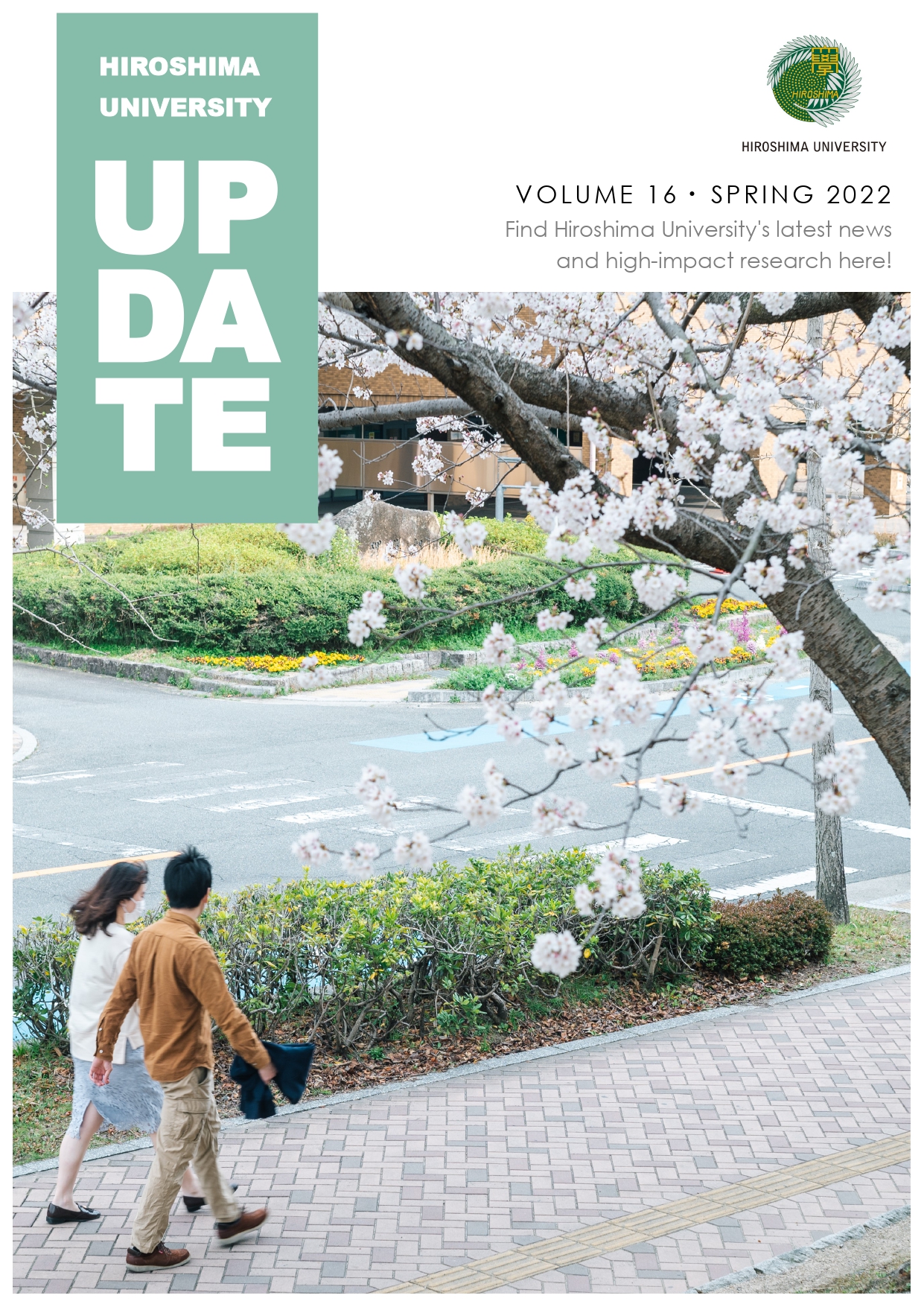Support Office for the fields of International Development and Cooperation
E-mail:smart-society*office.hiroshima-u.ac.jp(please replace * with @)

The 185th and the 186th Taoyaka Program seminar will be held on 26 July 2022 as follows. Admission free.
The details of his talk is as below. Feel free to join the seminar.
Date and time: September 21st (Wed) 15:00-16:30
Venue: IDEC Large Conference Room, Hiroshima University
Title & Speaker:
The 185th (15:00-15:45)
“Strategy and Innovation of Micro and Small Enterprises for Local Development toward 4.0 Era”
by Prof. Wido Prananing Tyas, Diponegoro University
The 186th (15:45-16:30)
“Building Scenario for Future Spatial Formations and Development”
by Prof. Iwan Rudiarto, Diponegoro University
TAOYAKA Program for creating a flexible, enduring, peaceful society will form the final cohort in Academic year 2022.
TAOYAKA Program will not be accepting applications for the academic year 2023 and beyond.
Hiroshima University will establish Graduate School of Innovation and Practice for Smart Society in April 2023.
Application Guidelines for April and October 2023 enrollment will be released around the middle of August 2022.
Support Office for the fields of International Development and Cooperation
E-mail:smart-society*office.hiroshima-u.ac.jp(please replace * with @)
TAOYAKA Program announce the applicants’ numbers of those who passed the following entrance examinations.
October 2022 Admission (Second Admission)
General Selection (Five-year course)
List of successful applicants’ numbers (PDF)
*Telephone/E-mail inquiries about the announcement will not be answered.
*Successful applicants will receive an e-mail about admission procedures.
The 184th Taoyaka Program seminar will be held on 26 July 2022 as follows. Admission free.
The details of his talk is as below. Feel free to join the seminar.
Date and time: July 26 (Tues) 10:30 ~ 12:00
Venue: IDEC201, Hiroshima University
Title: The Bishop’s “Fine Tact”: The Ambiguity, Ambivalence, and Relationality of Catholic Peacebuilding from Hiroshima and Nagasaki to Flores, Indonesia during the Asia-Pacific War
Speaker: Hirokazu Miyazaki, Kay Davis Professor, Professor of Anthropology, Northwestern University
The 183rd Taoyaka Program seminar will be held on 25 July 2022 as follows. Admission free.
The details of his talk is as below. Feel free to join the seminar.
Date and time: 25th July 16:00-17:30
Venue: Large Meeting Room 2F, Mirai Crea, , Hiroshima University
Title: The path towards herd immunity: predicting COVID-19 vaccination uptake through results from a stated choice study across six continents
Speaker: Prof. Stephane Hess, Institute of Transport Studies, University of Leeds, UK
The 182nd Taoyaka Program seminar will be held on 20 June 2022 as follows. Admission free.
The details of his talk is as below. Feel free to join the seminar.
Date and time: 20th June 14:35-16:05
Venue: Engineering A3-131, Hiroshima University
Title: Turnkey Laser Ablation Method to Produce Graphene and Related Materials: Application to realize Smart Miniaturized Devices
Speaker: Prof. Sanket Goel (MEMS, Microfluidics and Nanoelectronics (MMNE) Lab, Department of Electrical and Electronics Engineering, Birla Institute of Technology and Science (BITS) Pilani, Hyderabad Campus, Hyderabad, India)
We announce the applicants’ examinee’s numbers who have successfully passed the primary evaluation.
<General Selection (Five-year course) >
The 181th Taoyaka Program seminar will be held on 21st June 2022 as follows. Admission free.
Registration will be needed, if you want to attend the seminar online. The details of his talk is as below.
Feel free to join the seminar.
Date and time: 21st June 10:30-12:00
Venue: K204, IAS, Hiroshima University
If you want to attend the seminar online, please send an email to Dr. C. Funck.
Title: Exploring Sustainable Business Model for the Hospitality Industry
Speaker: Dr.Tadayuki Hara, Associate Professor at Rosen College of Hospitality Management, a senior Research Fellow at Dick Pope Sr. Institute for Tourism Studies at University of Central Florida in Orlando, Florida
One of our alumni, Dr. Qu Meng, has been working at Graduate School of Humanities and Social Sciences as an assistant professor. The research effort by Prof. Qu has been published on the public relations magazine, HIROSHIMA UNIVERSITY UPDATE (Spring 2022).
Prof. Qu’s research topics include socially engaged art festivals, relational aesthetics, creative in-migrants, sustainability, and rural revitalization. His current research aims at producing an interdisciplinary nexus on rural revitalization by focusing on creative tourism initiatives to revitalize communities in peripheral areas.
Please check out the magazine at the URL below.
(p. 12, “An aging Japanese island’s lessons on the future of sustainable travel”)
https://archive.hiroshima-u.ac.jp/koho_press/HiroshimaUniversityUpdate_202203.pdf

This seminar will be held on 13th April 2022 as follows. Admission free.
Registration will be needed, if you want to attend the seminar.
The speaker, Edwin Olson is co-founder and CEO of May Mobility Inc., He has focused on the development of autonomous vehicles for over a decade, helping to develop Ford Motor Company’s autonomous vehicles and co-leading autonomous vehicle development at Toyota Research Institute. May Mobility launched autonomous shuttle services in nine cities in the world including Arlington, Texas, Hiroshima University (HIROMOBI), and has successfully raised global funding. The details of his talk is as below.
Feel free to join the seminar.
Date and time: 13th April 15:00-16:10
Registration is required: https://bit.ly/3DT1sgf
Title: Autonomous Driving using Multi-Policy Decision Making (MPDM)
Speaker: Dr. Edwin Olson, CEO and Co-founder of May Mobility Inc.
Abstract:
In this talk, Dr. Edwin Olson will describe an approach to building autonomous vehicles using Multi-Policy Decision Making (MPDM). MPDM is a method for high-level decision making, in which a vehicle makes decisions like “should I pass this bicycle, or should I follow it?” It enables autonomous vehicles to interact more naturally with other cars and road users like bicycles and pedestrians, which is a requirement for autonomous to be widely deployed. With technologies like MPDM, his team believes autonomous vehicles can help to transform cities and increase transportation access and equity.